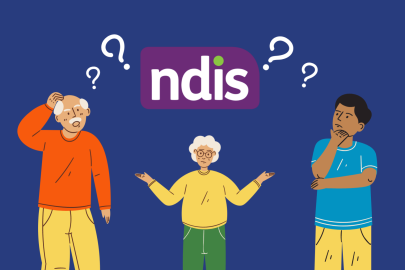Building Life Skills with NDIS Support: A Pathway to Independence
The National Disability Insurance Scheme (NDIS) is a transformative initiative designed to support individuals with disabilities across Australia. One of the most impactful aspects of NDIS support is its focus on building life skills. This article explores how the NDIS helps individuals develop essential life skills, the benefits of this support, and how to access these resources effectively.
What Are Life Skills and Why Are They Important?
Life skills are critical abilities that individuals need to manage their daily lives effectively. They include a range of practical and interpersonal skills that contribute to personal independence, social integration, and overall well-being.
1. Types of Life Skills
Daily Living Skills
These skills encompass essential activities such as personal hygiene, cooking, and managing household tasks. Mastery of daily living skills is fundamental for maintaining personal health and a comfortable living environment.
Social and Communication Skills
Social and communication skills include the ability to interact with others, express needs and feelings, and build relationships. These skills are vital for engaging with the community and fostering meaningful connections.
Problem-Solving and Decision-Making Skills
Problem-solving and decision-making skills help individuals navigate challenges and make informed choices. These abilities are crucial for achieving personal goals and managing everyday obstacles.
How the NDIS Supports Life Skills Development
The NDIS provides a range of supports and resources designed to assist individuals in building and enhancing their life skills. This support is tailored to each participant’s unique needs and goals.
1. Personalized Support Plans
Individualized Goals
Each NDIS participant develops a personalized support plan that outlines specific life skills goals. These goals are designed to align with the participant’s needs, aspirations, and daily challenges.
Resource Allocation

The support plan includes resources and funding necessary for achieving the set goals. This might involve funding for training programs, assistive technologies, or support services.
2. Funding for Skill Development Programs
Training and Workshops
The NDIS funds various training and workshop programs aimed at developing life skills. These programs cover a wide range of areas, including personal care, household management, and social skills.
Assistive Technologies
Funding is also available for assistive technologies that aid in life skills development. Examples include communication devices, adaptive tools for daily tasks, and mobility aids.
3. Access to Specialist Services
Therapists and Coaches
Participants can access a variety of specialists such as occupational therapists, speech therapists, and life skills coaches through the NDIS. These professionals provide targeted support and guidance tailored to individual needs.
Community Programs
The NDIS supports community programs that promote social inclusion and engagement. These programs provide practical opportunities for participants to practice and refine their social skills in real-world settings.
Benefits of Building Life Skills with NDIS Support
Developing life skills with the help of NDIS support offers numerous benefits, contributing to the overall quality of life for individuals with disabilities. https://ndiscommunitysupport.com.au/
1. Increased Independence
Mastering essential life skills enhances personal independence, allowing individuals to manage their daily routines more effectively. This increased self-sufficiency fosters greater confidence and autonomy.
2. Improved Quality of Life
Life skills development leads to a better quality of life by enabling individuals to participate fully in everyday activities, maintain personal relationships, and manage their living environment.
3. Enhanced Social Integration
Developing social and communication skills helps individuals integrate more seamlessly into their communities. Improved social interactions reduce feelings of isolation and promote meaningful connections.
4. Better Problem-Solving Abilities
Strong problem-solving and decision-making skills equip individuals to handle challenges more effectively and make informed choices, leading to improved overall life satisfaction.
How to Access NDIS Support for Life Skills Development
Accessing NDIS support for life skills development involves several steps, from determining eligibility to implementing a personalized support plan.
1. Eligibility and Planning
Eligibility Criteria
To access NDIS support, individuals must meet specific eligibility criteria, which include having a permanent and significant disability that impacts their daily life. An eligibility assessment determines suitability for the scheme.
Developing a Support Plan
Once eligible, participants work with an NDIS planner to develop a personalized support plan. This plan outlines life skills development goals, required services, and funding allocations.
2. Implementing and Monitoring Support
Choosing Providers
Participants select service providers from the NDIS-approved list to access life skills development programs and specialist services. The NDIS portal provides resources to help find appropriate providers.
Tracking Progress
Regular reviews and progress evaluations ensure that the support plan is effectively meeting the participant’s needs. Adjustments to the plan may be made based on progress and feedback.
Conclusion
Building life skills with NDIS support is a crucial step towards greater independence and improved quality of life for individuals with disabilities. Through personalized support plans, funding for skill development programs, and access to specialist services, the NDIS provides valuable resources to help participants enhance their daily living abilities. By leveraging these supports, individuals can achieve their personal goals, integrate more fully into their communities, and lead more fulfilling lives.




